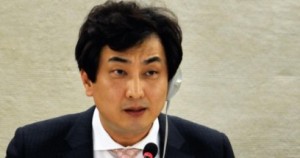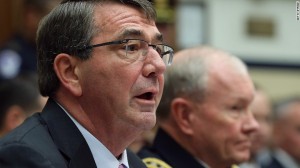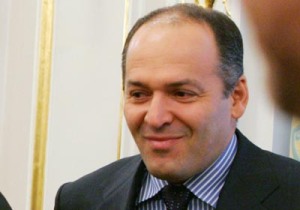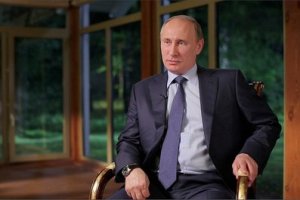UK Still Plans to Arrest Him
Quemado Institute
February 4, 2016
 Julian Assange, founder of WikiLeaks and acclaimed whistleblower who has published numerous documents revealing crimes of the US government, has been declared,
by the UN Working Group on Arbitrary Detention (UNWGAD) based in
Geneva, as “illegally detained” during his 3.5 year stay in the
Ecuadorian Embassy in London. Assange took refuge at the embassy in 2012
to avoid extradition to Sweden for investigation into what are believed
to be false allegations of sexual assault, as well as potential further
extradition to the United States for inquiries into possible espionage.
The UN finding is both a moral triumph for Assange and a confirmation
of the universal right of freedom of the press.
Julian Assange, founder of WikiLeaks and acclaimed whistleblower who has published numerous documents revealing crimes of the US government, has been declared,
by the UN Working Group on Arbitrary Detention (UNWGAD) based in
Geneva, as “illegally detained” during his 3.5 year stay in the
Ecuadorian Embassy in London. Assange took refuge at the embassy in 2012
to avoid extradition to Sweden for investigation into what are believed
to be false allegations of sexual assault, as well as potential further
extradition to the United States for inquiries into possible espionage.
The UN finding is both a moral triumph for Assange and a confirmation
of the universal right of freedom of the press.
The UN panel, headed
by South Korean academic Seong-Phil Hong, is authorised to investigate
complaints from individuals on whether countries are adhering to
international legal standards on detention. According to The Guardian,
Seong-Phil Hong “has worked as a conciliator for the World Bank and also
dealt with North Korean human rights and the issue of second world war
sexual slavery. The other members of the panel are from Mexico, Benin,
Australia and Ukraine.” The official announcement of the panel is to
appear on Friday February 5.
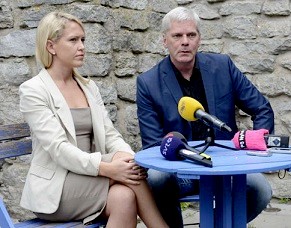 |
| Spokesman Kristinn Hrafnsson, lawyer Jennifer Robinson (–wlcentral.org) |
According to an earlier Sputnik News report, the finding
that Assange’s detention is illegal means “the United Kingdom and
Sweden would immediately have to release him and pay compensation….’In
that case we would expect the Swedish and the British authorities to
react immediately to lift the arrest warrant on Sweden, and for the UK
authorities to return his passport,’ Kristinn Hrafnsson said. According
to Hrafnsson, it is expected that Assange should be able to travel
anywhere if the United Nations were to rule in his favor. ‘I would
simply not want to believe that these two countries, Sweden and the UK
would disregard finding of such an important UN panel,’ the spokesman
said.”
The verdict of the UN panel, however, is not binding on national governments. As a later Sputnik report
says, “The UK authorities still have a legal obligation to extradite
WikiLeaks founder Julian Assange to Sweden due to a European arrest
warrant in place, according to a UK government spokesperson.”
British officials have stated
Assange will still be arrested if he leaves the embassy, despite the UN
findings, and extradited to Sweden in a sexual assault investigation,
allegations Assange denies. According to NBC News, “The investigation
into allegations of sexual assault was dropped in August 2015 because
prosecutors ran out of time to bring charges, but prosecutors said they
would continue investigation [into] a further allegation of rape.” That
these are trumped-up charges is suspected but unproven.
The danger of extradition to Sweden is that the Swedish government may then extradite
the WikiLeaks founder to the United States, where possible espionage
charges might be brought for Assange’s publication of sensitive
government documents. “Assange has expressed fear that if Britain
extradites him to Sweden he would then be extradited to the United
States to face trial,” reports NBC News.
 |
| Mark Ellis (–youtube.com) |
The Guardian quotes
the opinions of two legal experts on how the UN finding might impact
Assange’s case: “Mark Ellis, executive director of the London-based
International Bar Association, said: ‘The information seems to suggest
that the UN panel has found in Assange’s favour. That decision would
seem to contradict a fairly extensive legal process both in the UK and
in Sweden. It’s important to maintain adherence to rule of law
principles and ensure that individuals have to abide by legal rulings.
It’s surprising to think that Assange could be exempted from those
principles. The ruling by the UN panel is not binding on British law. It
would, however, provide Assange with support for his claim that he
should not be extradited. I’m sure the UK is trying to figure a way
out.”
In another opinion, according to The Guardian: “Kirsty Brimelow
QC, of Doughty Street Chambers, an expert in international law
tribunals, said: ‘A finding by UNWGAD against the UK is not binding. It
has no enforcement power. However, a finding that the UK has acted in a
way which is inconsistent with relevant international standards should
not be ignored by the UK. The UK should not act contrary to
international law.’”
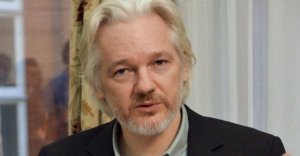 |
| Julian Assange, August 2014 (–Reuters) |
The Guardian goes on to conclude, “A clash between the moral
authority of the United Nations and the stalled mechanism of the
European extradition against Julian Assange is likely to provoke
diplomatic anxiety inside Whitehall. The UN body’s expected ruling, at
the very least, constitutes a publicity coup for Assange and his
supporters. Both the UK and Sweden are active upholders of the United
Nations. Neither will relish the prospect of having to answer to the
UN’s human rights council about why they have failed to enforce the
panel’s decision.”
Unlike Edward Snowden, who violated his security clearance to reveal
damning US documents in an act of civil disobedience, Julian Assange may
not be technically guilty of breaking US law, a determination that
could involve complex legal arguments.
According to the Legal Information Institute, applicable law is documented in 18 U.S. Code § 798 – Disclosure of classified information:
(a) Whoever knowingly and willfully communicates, furnishes,
transmits, or otherwise makes available to an unauthorized person, or
publishes, or uses in any manner prejudicial to the safety or interest
of the United States or for the benefit of any foreign government to the
detriment of the United States any classified information—–
(1) concerning the nature, preparation, or use of any code,
cipher, or cryptographic system of the United States or any foreign
government; or
(2) concerning the design, construction, use, maintenance, or
repair of any device, apparatus, or appliance used or prepared or
planned for use by the United States or any foreign government for
cryptographic or communication intelligence purposes; or
(3) concerning the communication intelligence activities of the United States or any foreign government; or
(4) obtained by the processes of communication intelligence from
the communications of any foreign government, knowing the same to have
been obtained by such processes—–
Shall be fined under this title or imprisoned not more than ten years, or both.
In certain previous cases, journalists reporting information obtained
from third parties who leaked classified documents have not themselves
been charged with espionage, a fundamental principle of freedom of the
press. This is in contrast to persons who themselves hold security
clearances, such as Hillary Clinton or Win Ho Lee, and violate the terms
of their clearance, which is unambiguously illegal.
Wikipedi offers the following summary of Julian Assange’s enterprise:
WikiLeaks is an international, non-profit, journalistic
organisation that publishes secret information, news leaks, and
classified media from anonymous sources. Its website, initiated in 2006
in Iceland by the organization Sunshine Press, claimed a database of
more than 1.2 million documents within a year of its launch. Julian
Assange, an Australian Internet activist, is generally described as its
founder, editor-in-chief, and director. Kristinn Hrafnsson, Joseph
Farrell, and Sarah Harrison are the only other publicly known and
acknowledged associates of Julian Assange.
Supporters of Julian Assange who are able to be in
London tomorrow are urged to show solidarity: Friday, February 5, 1pm
till around 3.30, at the Ecuadorian Embassy, Hans Crescent, London SW1. Click here for more information.
© 2016 Kennedy Applebaum, Quemado Institute
